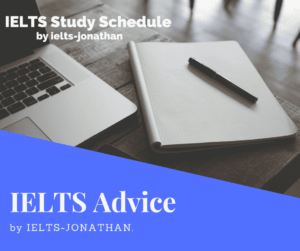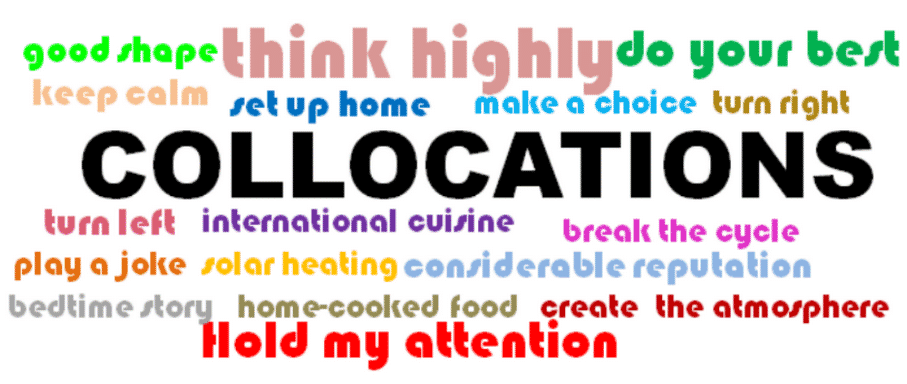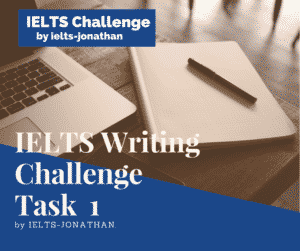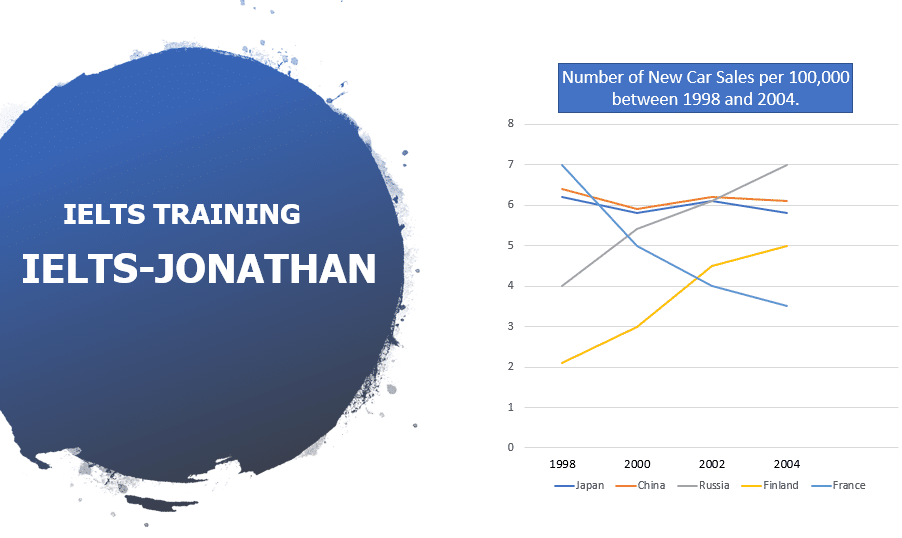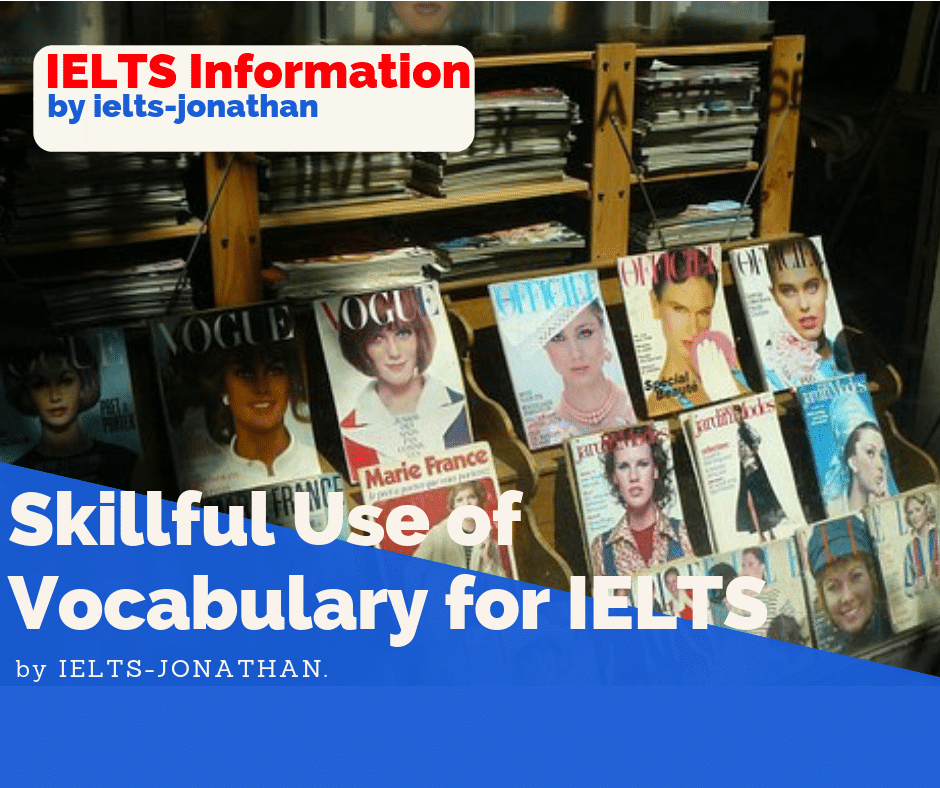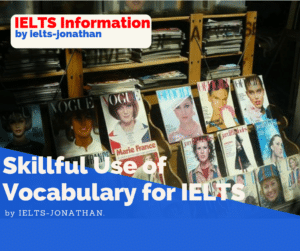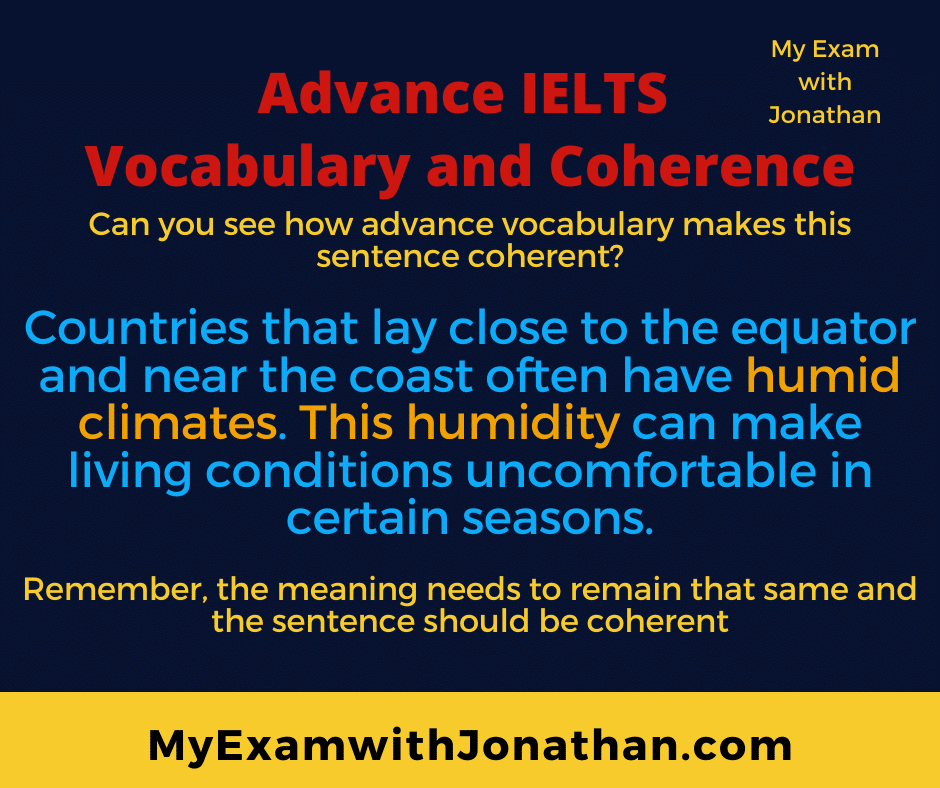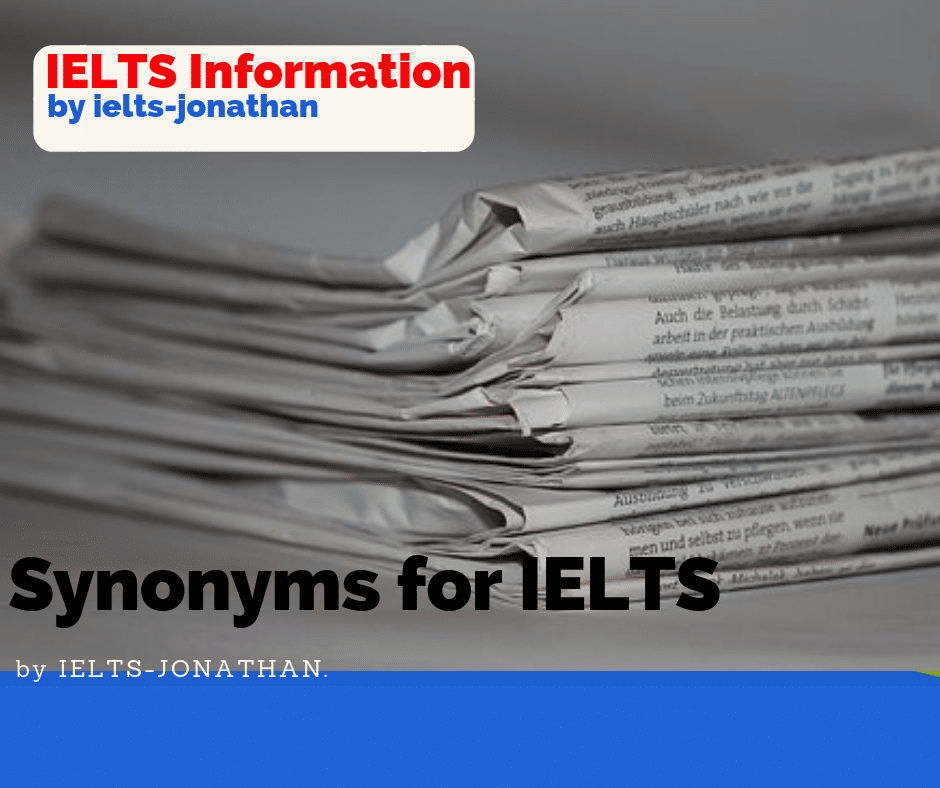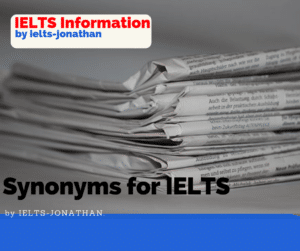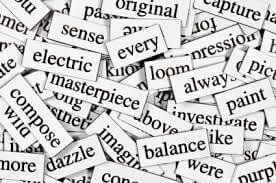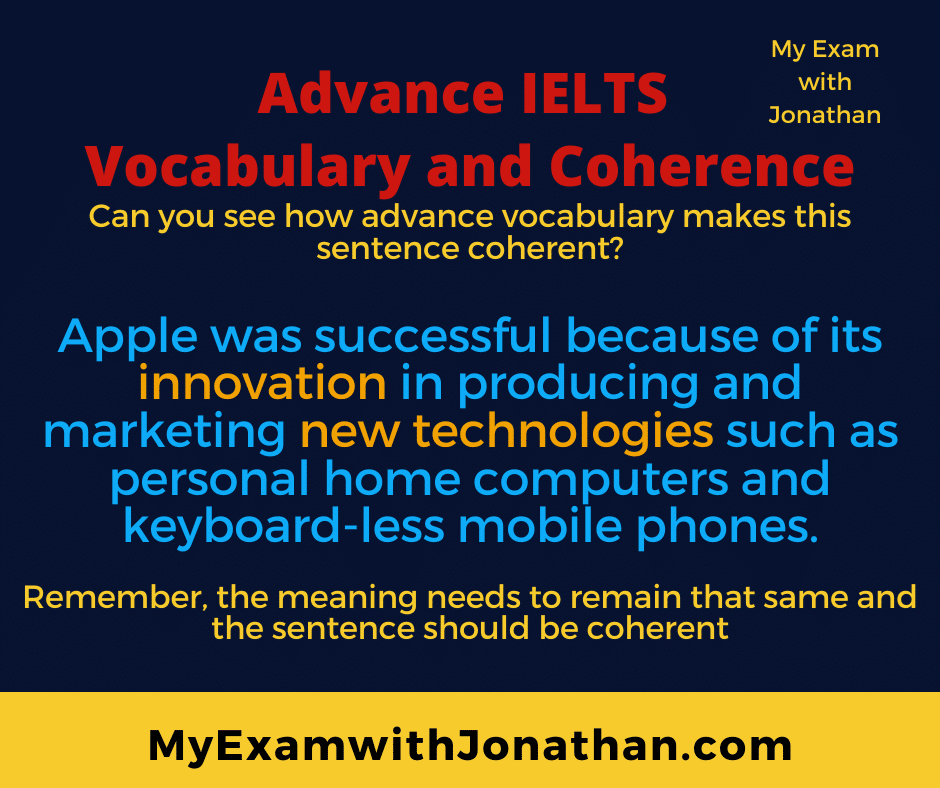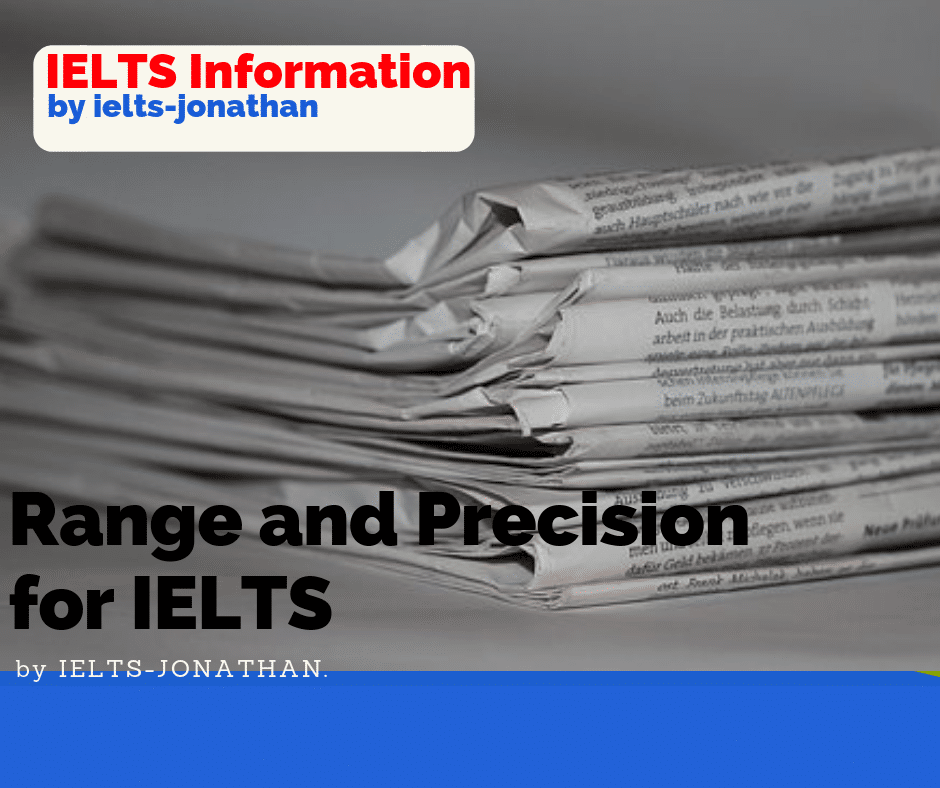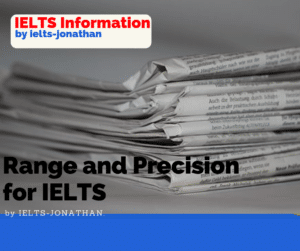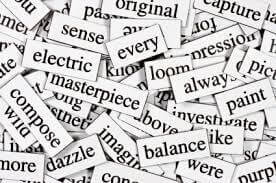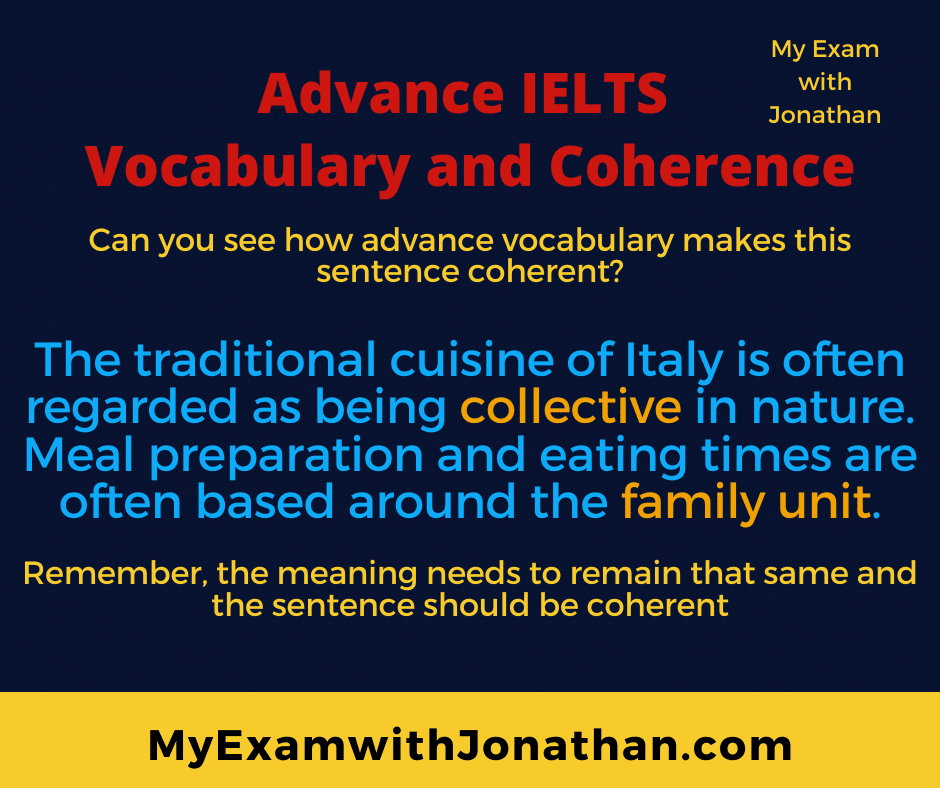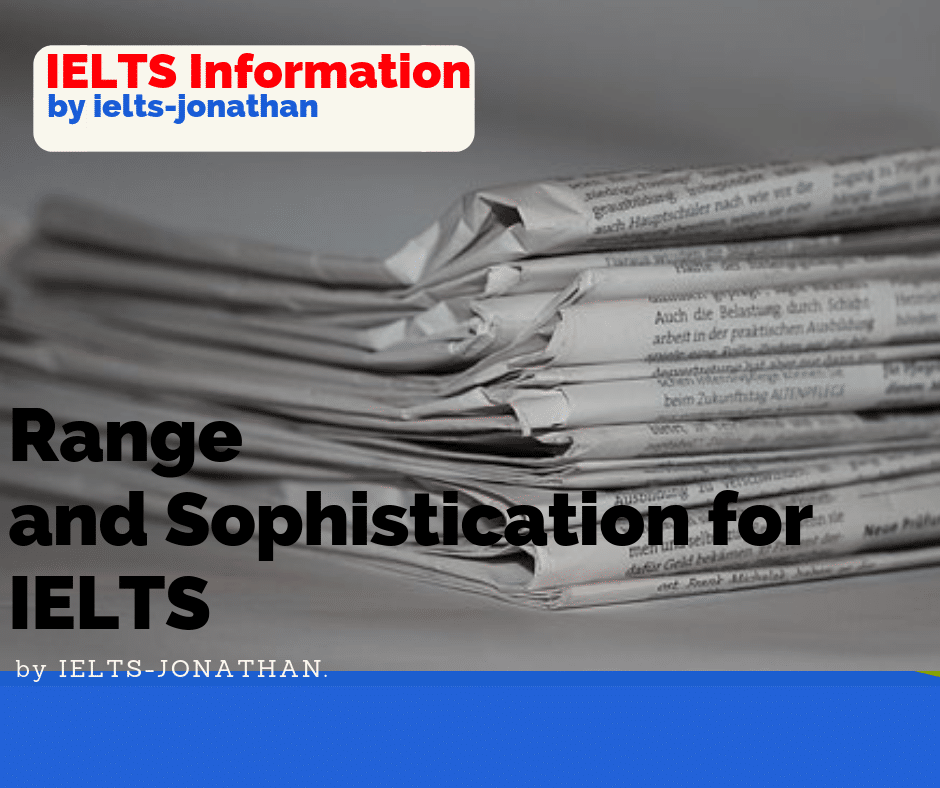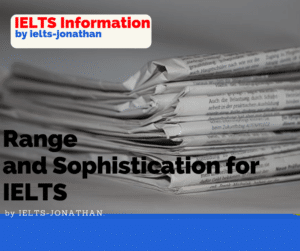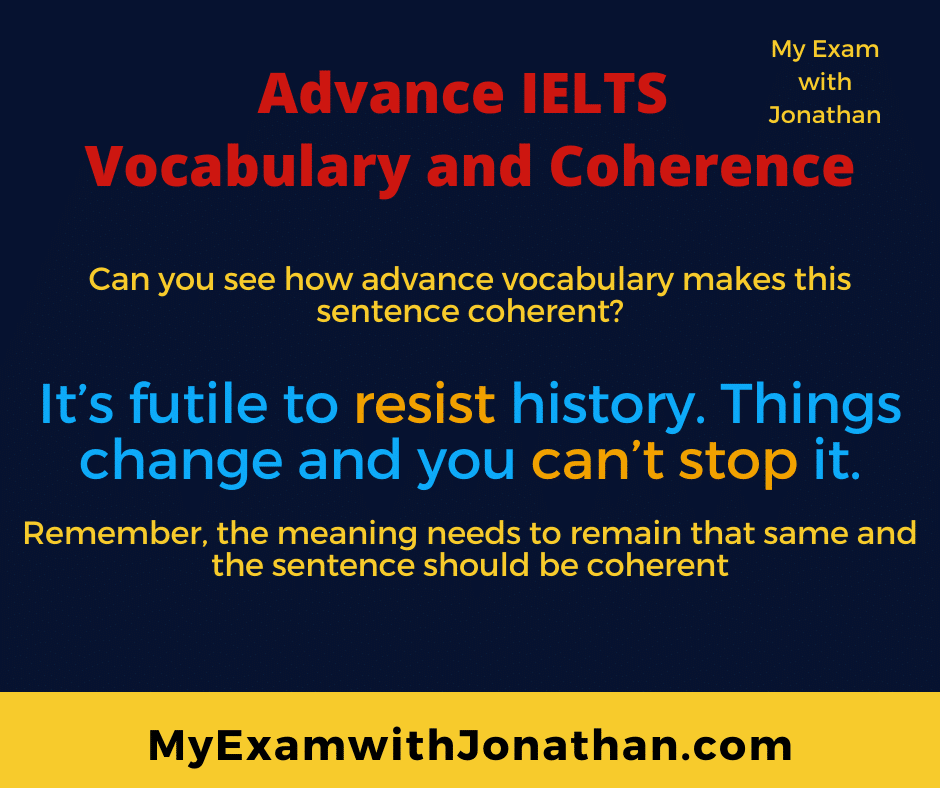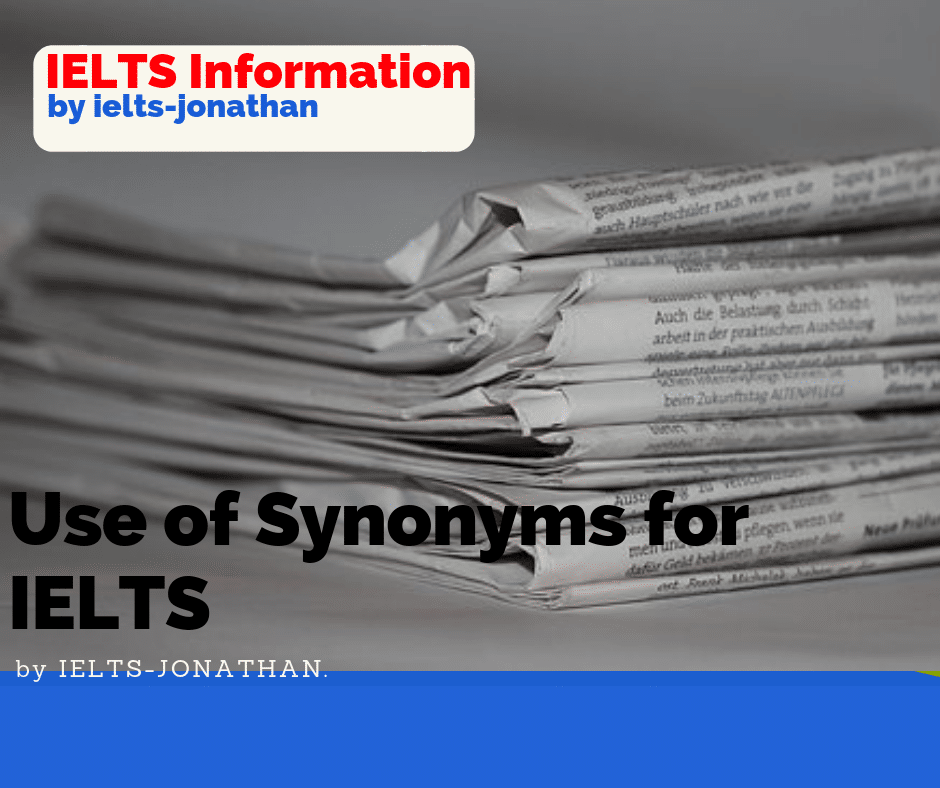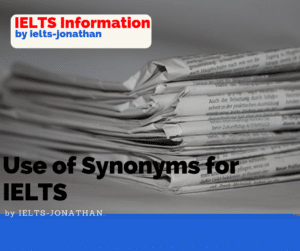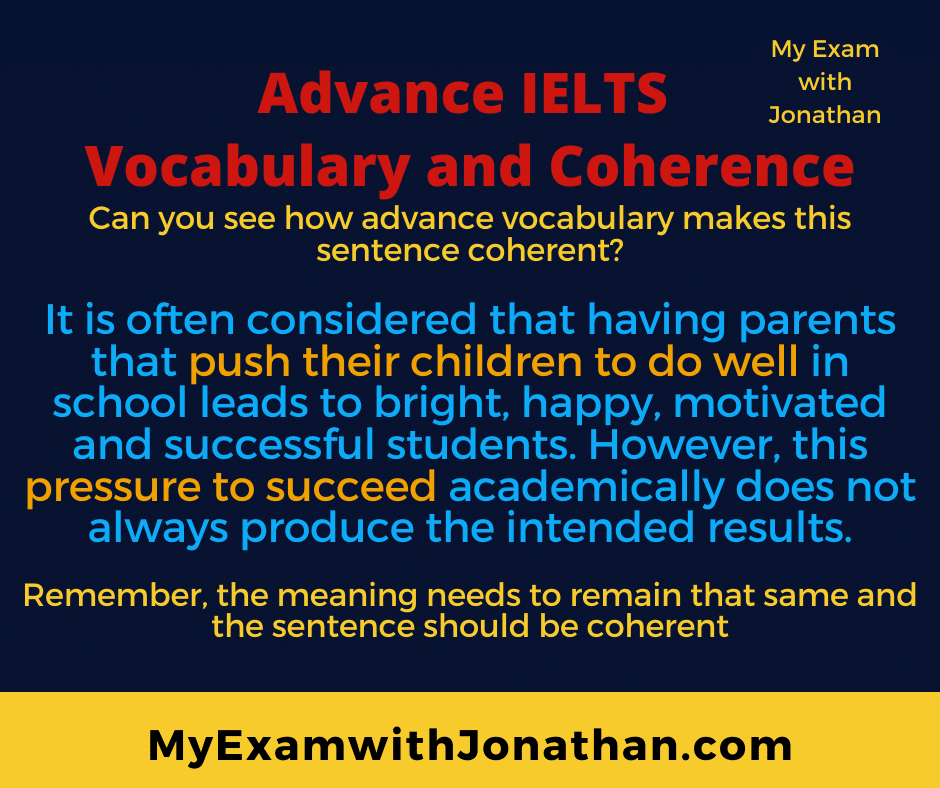Vocabulary for IELTS
If I was to recommend the type of vocabulary most useful for IELTS, I would argue collocations. Learning these are one of the easiest ways of expanding your vocabulary and increasing you band score.
Used skillfully, collocations can improve both you writing and speaking scores and also help you in the reading and listening sections.
So what are they exactly?
You’re probably already familiar with collocations from text books used for studying English. They are the 2 or 3 words that commonly go together and appear correct to a native speaker. ‘go to school’ is probably the first one you ever learned!
On the opposite scale, when used incorrectly they can appear strange to a native speaker.
Other Basic Examples
go home go shopping spend time spend money watch a film watch television
Why are collocations important?
Collocations are a feature of the marking criteria in the both the Speaking and Writing section!
It is not enough to just use some common collocations because you are marked on how you can use collocations effectively.
Here are the Public Band Descriptors for Writing Task 2 Band 7
- uses a sufficient range of vocabulary to allow some flexibility and precision
- uses less common lexical items with some awareness of style and collocation
- may produce occasional errors in word choice, spelling and/or word formation
So in writing the use of collocations demonstrate a more advanced awareness of English.
In speaking they give your speech a smooth natural flow which, if used well, can help you get a Band 7 or more in the speaking test.
There are quite a few patterns such as:
- Verb + Noun
- Verb + Adverb
- Adjective + Noun
- Adverb + Adjective
- Noun + Noun
- Collocations with ‘have’ or ‘take’ and other verbs
Let’s take a look at some example sentences.
Don’t just read or copy these. See if you can construct your own sentences
Verb Noun collocations
a) It was his 21st birthday so he decided to throw a party.
b) The student raised a question about the topic in class.
c) The teacher paid him a compliment about his well-written IELTS essays.
d) She was late for work so she made an excuse about the train being delayed.
e) The government is giving priority to the issue of air quality in cities.
f) He made an appointment to see the dentist.
g) I’ve made an effort to improve my essay writing.
Verb Adverb collocations
- a) The customer complained bitterly about the terrible service.
b) The guests were welcomed warmly when they arrived at the party.
c) She spoke loudly over the phone because the signal wasn’t very good.
d) He smiled proudly when he got his IELTS exam results.
e) He apologised profusely after bumping into the man and spilling his drink.
f) She is a very gentle person who speaks softly.
Adjective Noun collocations
- a) I have a keen interest in going to University and becoming a Doctor.
b) We had a brief chat about our travel plans next week.
c) There was heavy snow overnight, the roads were all blocked.
d) I was given invaluable advice by the teacher about doing the reading test.
e) He suggested a fantastic idea so we all decided to go.
f) There is a strong possibility that the climate will get warmer over the next two decades because of global warming.
Adverb Adjective collocations
- a) I was completely shocked by his bad behaviour.
b) She is totally satisfied with her Band 8 score in IELTS.
c) It is incredibly stupid to drink and drive.
d) The weather is rather cold for this time of year.
e) The new laws about internet privacy are pretty worrying.
f) I’m extremely interested in getting a Band 9 in IELTS.
Noun Noun collocations
- a) There was a ceasefire agreement by the rebel groups.
b) I bought a loaf of bread and a can of coke.
c) He bought a round of drinks for his friends
d) He got a round of applause after his performance
e) They work in the service industry.
f) You need a building permit to build a house.
Collocations with ‘Have’ or ‘Take’
In British English the word ‘have’ is popular, e.g. have a bath, have a look, have a break, have a holiday where as in American English the word ‘take’ is often used such as: take a bath, take a vacation, take a look.
How do I learn collocations?
When we learn new words you should learn the surrounding words or the matching words that help it collocate. Do not just memorise words on their own. Collocations are like chunks of language (lexical chunks) and there are various patterns.
The best way to learn them is through reading, listening and making your own sentences with collocations.
I always advise students to make a vocabulary book where you write out example sentences rather than making word lists.
When reading make notes like these
- a rich variety adj + noun
- a vital part, a necessary part
- a range of reasons
- musical preferences
- life stories
- express emotions, arouse emotions
- a commercial product
- cultural identity
- human existence
- give importance
and then add to it like this. I’ve done the first one.
- a rich variety adj + noun (of fauna, animals, experiences, examples) The text provides a rich variety of examples to consider.
- a vital part, a necessary part
- a range of reasons
- musical preference
One more reason why you should learn collocations
Do this because it’s important to know how collocations work with other words and also in the surrounding sentence.
When you learning a new word, don’t simply put it in a list and don’t use a translator, google it and this will provide all the main collocations easily.
Constructing example sentences containing the collocations will help you remember the word more effectively, you will also be broadening your vocabulary and thereby helping you in all parts of the test.
Good Luck
PS, you can find the PDF files for Collocations here. Share if you want!
IELTS Feedback
I can correct and give valuable feedback to improve your IELTS writing using my correction service link here.
Finally, you can go over to my Facebook page and join other students who are working towards the test.
You can use tips and information on this website to help make it easier to obtain a higher score, but remember you still need to work at learning the language to be successful or join my challenge here.
Please share to someone you know and in the meantime take a look at my Facebook Page and Website for IELTS answers and you can also join my Facebook Group here too.
Good Luck
Jonathan
I’m Jonathan I’ve taught IELTS and University English in more than a dozen universities and schools around the world. I’m a parent, traveller and passionate about language teaching and helping students achieve their dreams. Whilst living in Austria or working in Asia, I run IELTS courses to help students get to where they want to be. If you are serious about IELTS, connect with me to see how I can help you. The Best Approach to Task 2 Writing Paragraphing in Task 2 Writing Writing – Benefits of a Foreign University Education

